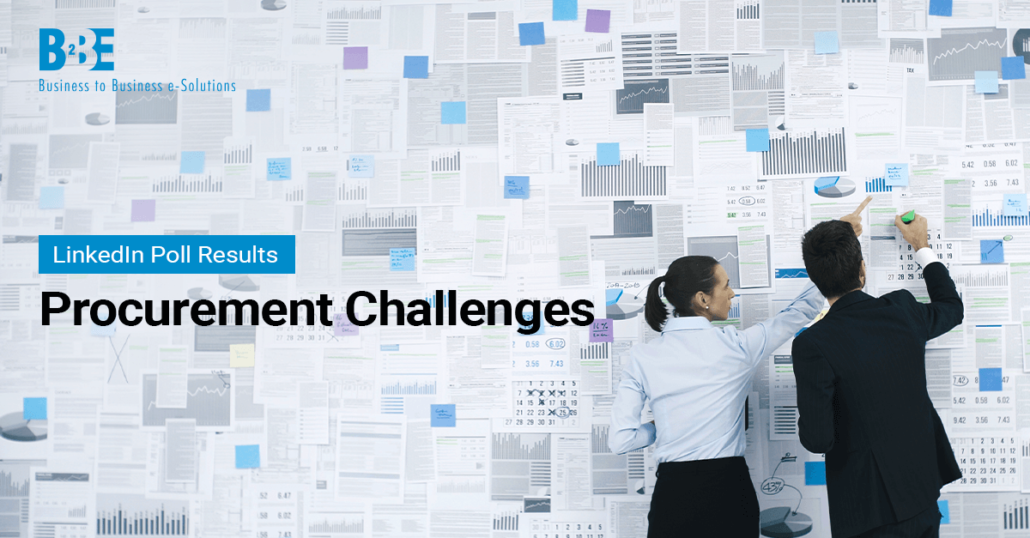What procurement challenges are businesses facing in 2024? We explore some key challenges from incorrect data, risk management, and more.
When it comes to Beschaffung, many companies will agree that it is one of the most important aspects of running a business because it ensures that the necessary services are acquired efficiently. It is not just about purchasing, but it is also about strategic planning, good supplier management, risk mitigation, and cost optimisation.
We asked our followers what their biggest procurement challenge has been this year.
Poll results
Let’s dive into the biggest procurement challenges identified in our recent LinkedIn poll.
What is the biggest procurement challenge facing your business in 2024?
The results were split into the following main procurement challenges:
- Incorrect data
- Lack of transparency
- Risk management
Incorrect data
A significant 45% of respondents found incorrect data as a hurdle in their procurement process. Incorrect data can lead to additional costs incurred, including overpayments, stockouts, or missed opportunities for cost-saving. Correcting this issue requires a lot of time and resources such as data validation protocols, analytics tools, and employee training.
However, investing into digital procurement platforms and automation can help to improve the situation. For example, Web EDI solutions can streamline data exchange between trading partners, reducing manual errors and oversight. With accurate data, businesses are able to make informed decisions based on past learnings and recent wins. Although it can be time-consuming to start the process, better results can be achieved slowly but surely.
Lack of transparency
45% of respondents identified lack of transparency as a major obstacle in their procurement process. This does not come as a surprise as many businesses often have trouble tracking their transactions, making it difficult to assess the performance of suppliers and check their compliance levels. It also poses several other risks to businesses, including fraud and regulatory violations.
Overcoming this challenge requires looking into sustainable procurement practices such as utilising automation to improve visibility. Take automation as an example: It gives stakeholders access to real-time information on orders, shipments, and invoices, allowing all parties to collaborate seamlessly. Only with visibility then businesses can be in control of their documentation and processes. As an added benefit, many operations can be simplified, and repetitive tasks can be left to digital systems.
Risk management
Although 0% of respondents mentioned risk management, it remains a concern in procurement because it encompasses the broader picture of inaccurate data and lack of transparency. Mitigating risks requires proactive measures such as conducting risk assessments, diversifying supplier portfolios, and preparing robust contingency plans. All this ensures that businesses can continue operating at its maximum potential even in an unstable economy or unexpected situation, building up necessary resilience against these challenges.
Andere
The remaining 9% of respondents cited “other” as their issue. This could include regulatory compliance, supplier relationship management, and procurement process inefficiencies. Some solutions to these procurement challenges would be supply chain mapping, scenario preparedness planning, and predictive analytics – all of which includes partnering with supply chain service providers who can help businesses optimise their operations.
Businesses have to remain proactive in navigating the procurement landscape in 2024 to secure sustainable growth in the years ahead. With this, it becomes easier to identify opportunities that benefit the company compared to being reactive only when an issue happens.
Learn more about B2BE’s Procurement solution.
More information
B2BE’s experience in the supply chain sector allows our customers to build, expand and adapt successfully, enabling greater effectiveness. To engage with B2BE and offer feedback on what matters most to you and your business, make sure to follow us on LinkedIn and across social media. You can also vote in our latest LinkedIn poll. If you’d like to discuss your supply chain strategy, get in touch with us.
